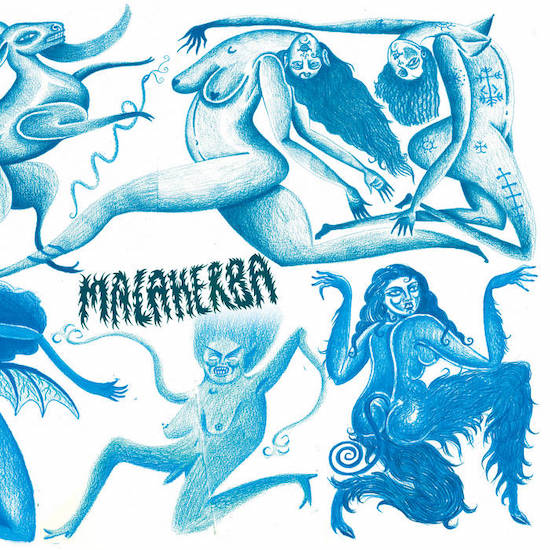Polish musician, sound artist, and queer activist Zosia Hołubowska has been releasing music under the Mala Herba moniker since 2017. Their music is spiritual but grounded with dance floor sensibilities. This gives their music a unique feel. One foot in the past and one in the future. Debut album Demonologia follows on from Hołubowska’s 2017 demo and EP. As with those releases, Demonologia is peppered with allusions to Eastern European music, magic, herbalism, and demonology, combining these references with contemporary electronic music. The results are akin to a disco at a witchy ritual.
‘Wszystko Marność’ is a prime example of this. Lyrically, Mala Herba takes a Polish religious song that speaks about the vanity of the world and then underpins it with some retro synths and beats that wouldn’t be out of place on the next series of Stranger Things. There is something sinister about the music that keeps drawing you in, while the vocals soar over the top of it. Around the halfway mark ‘Wszystko Marność’ gets locked into a groove. The bassline sounds massive, the beats are rhythmic in a poppy industrial way, with subtle delicate synths underpinning everything and giving us that all important sense of some tangible thing to latch on to. It isn’t just the standout moment on the song, but one of the standout moments on the album. ‘Dawaj’ is another track that just builds and builds. Instead of creating a track based around a folk tale, Mala Herba crafts an exquisite electro banger and layers their banshee wails over the top of it, giving everything dank Blade Runner vibes.
Throughout Demonologia, Mala Herba’s vocals have a sinister quality to them. This makes sense as the album is loosely about how ghosts and demons are depicted through Eastern European folk stories and songs. While you might not understand the words, the emotional quality of the stories comes across. When Mala Herba wails, you feel it.
At times Demonologia feels like a companion piece to Toy and Bat For Lashes’ SEXWITCH album from 2015. That record was filled with Krautrock motifs and psych folk flourishes where Mala Herba uses elements from clubland. Both end up at the same place. Taking forgotten folk tales and giving them a new lease of life and meaning.
Take Mala Herba’s final track,‘Bandoska’, a story of sorrow and fatigue. In the original story that inspired the song, the protagonist is exhausted by working hard in the fields all day alone. In this version you are given the impression that the tiredness comes from dancing all night and the emptiness from going home alone. It’s twists like that that make Demonologia a rich and delightful listen.


